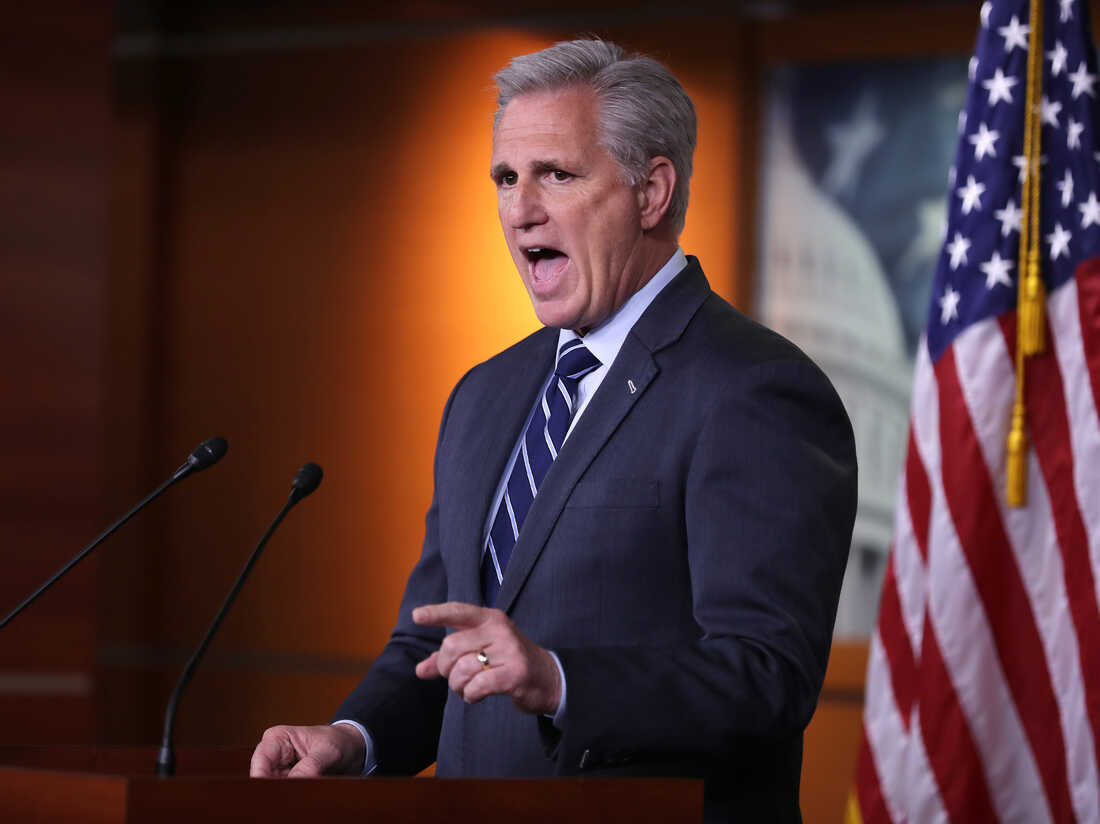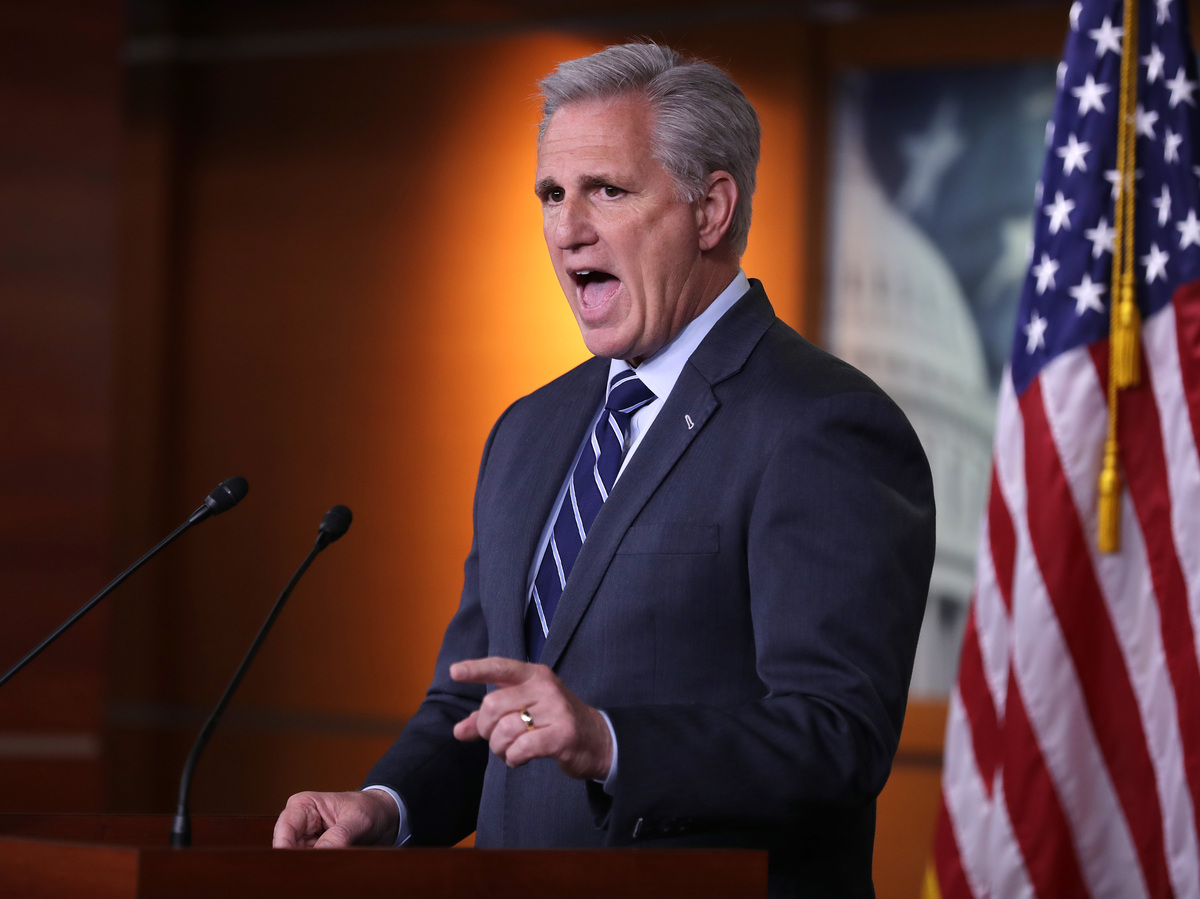
Republican House leader Kevin McCarthy of California. Chip Somodevilla/Getty Images hide caption

Republican House leader Kevin McCarthy of California.
Chip Somodevilla/Getty ImagesA small group of Republican hardliners set out to block Kevin McCarthy, their party's leader in the House of Representatives, from becoming Speaker. That same faction has taken on GOP leaders before.
We speak to Paul Kane, senior Congressional correspondent and columnist for the Washington Post, about the history behind this week's standoff in Congress.
Email us at
This episode was produced by Connor Donevan, Noah Caldwell, and Michael Levitt. It was edited by William Troop and Justine Kenin. Our executive producer is Sami Yenigun.

 Live Radio
Live Radio